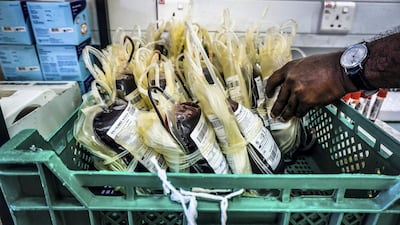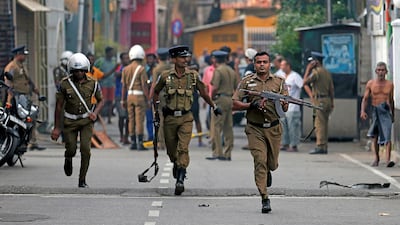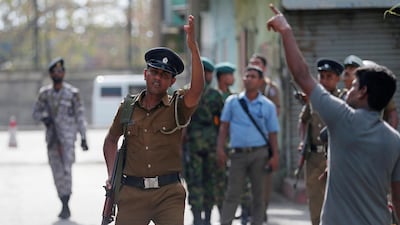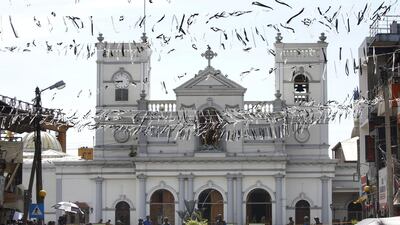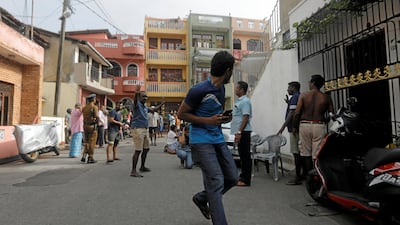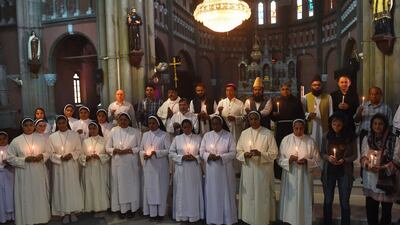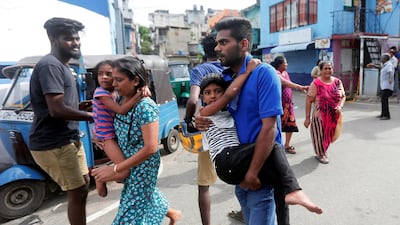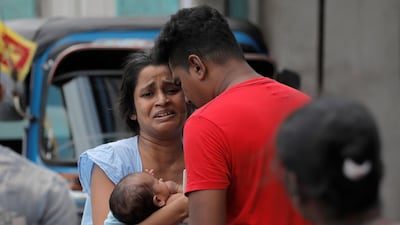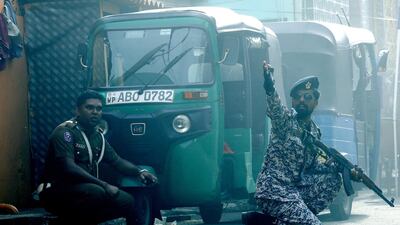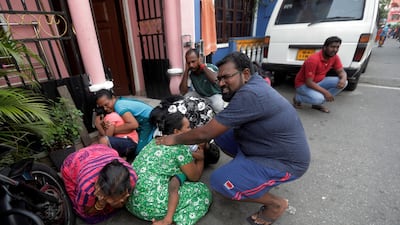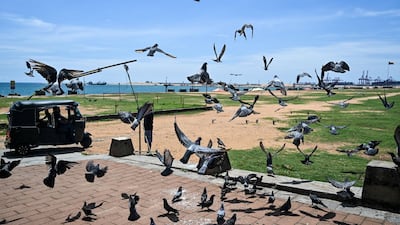Outside Sri Lanka’s dilapidated national hospital in central Colombo, Rajan Wijesena leaned against a pillar, wailing uncontrollably.
Inside, his older brother was clinging to life.
“It’s not good, he is in the ICU,” said the young man from the southern city of Galle. “He is 90 per cent dead.”
Mr Wijesena, 29, dressed in ripped jeans and sandals, learnt of his brother’s condition when the Shangri-La Hotel appeared on a television screen on Sunday.
His brother, 32, worked as a room service attendant at the five-star hotel, which was one of three luxury resorts attacked by suicide bombers on Sunday.
The attackers killed nearly 300 people in those blasts and five others at three churches, a guesthouse and a residence north of Colombo, in a day already referred to by some Sri Lankans as "Black Sunday".
As Mr Wijesena continued sobbing, bystanders approached to console him as ambulances screeched along the road.
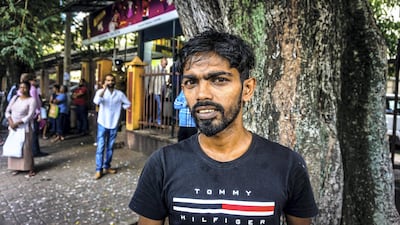
Sri Lankans have rallied to support one another after the attacks but with recriminations flying, anger threatens to lead to more violence.
At the central blood bank in Colombo, more than 1,500 people turned up to donate on Sunday. Overwhelmed staffers turned hundreds away.
"The response was unprecedented," Mahesh Gunasekara, director general of the Sri Lankan Red Cross, told The National.
Throughout the day, Sri Lankans such as Shakeer Samsudeen, 23, a Muslim telecoms worker who lost a friend in the attacks, kept arriving.
“I came to donate blood for our people, for those who are suffering,” Mr Samsudeen said, tearing up when speaking about his slain compatriots.
Accountant Anushan Radhakrishnan, 36, said donating blood was his way of helping.
“I felt that blood and tears are the same for every human,” Mr Radhakrishnan said.
Across Sri Lanka, health workers have taken 3,717 units of blood, enough to cover the needs of the more than 500 wounded people.
Yet beneath this solidarity, the Easter massacre has stoked anger and fear that ethnic and religious divides will be deepened on this multicultural island.
Outside St Anthony’s Shrine – a 191-year-old baroque Colombo landmark – on Monday, three white-robed Roman Catholic bishops inspected the wreckage of a controlled explosion amid a crowd of onlookers.
Beyond the devastation, the scene suggested Sri Lanka’s cultural unity may yet be the biggest casualty of the attack.
Ranjidh DaSilva, 56, a Catholic tuktuk driver, was quick to blame Muslim militants for the co-ordinated attack on eight targets, including three churches.
While Mr DaSilva's presumption was supported by a government announcement that an obscure group called National Thowheeth Jama’ath (NTJ) was responsible, his anger did not stop with them.
“Why did they blow up hotels? They are idiots. The LTTE never killed 300 in one day,” he shouted, referring to the Tamil Tigers who waged a decades-long insurgency against the state.
“If they [the government] say officially it was Muslims, they will get anger, they will kill Muslims.”
Across the country, there are fears that violence against Muslims and other religious minorities will escalate.
On Sunday night, reports surfaced of a firebombing at a mosque in Chilaw, a town in north-western Sri Lanka, and an attack on a Muslim-owned grocery store in the town of Mannar. No injuries were reported in either.
A week before Sunday’s tragedy, a Sinhala mob attacked a Methodist church in the northern city of Anuradhapura. The mob threw stones and firecrackers at the church and locked its entrance after the arrival of its bishop.
Many Sri Lankans fear the attacks and reprisals could see the country return to the darkest days of its civil war, when the island was riven along ethnic lines.
“I don’t want that for my son,” said Ahmed Farooq, an IT worker. “I have seen with my own eyes the carnage that happened, the distrust, the problems between people.
"I just want it reconciled and all of us to live happily and peacefully.”
Despite the attacks being blamed on Muslim extremists against Christians and foreigners, Tamils fear for their future.
The minority group faced discrimination during the decades of war that only ended in 2009.
Afterwards, the government faced accusations of war crimes, memories that were revived last year when former leader Mahinda Rajapaksa made a political comeback.
“Tensions between Tamils and Sinhalese may also increase if the security apparatus kicks into action, as expected,” says Mario Arulthas, director of People for Equality and Relief in Lanka, based in Washington.
“Already Tamils in the north-east of the country face the brunt of the military, with the majority of the army based in the Tamil provinces.”
Human-rights groups say the military still represses Tamils and there is concern that Sunday’s attacks and the nationwide curfew will give the army a chance to crack down on the community.
"There are worries that it gives the Sri Lankan security forces, who haven't been held to account, a free leash to go out and commit human rights abuses," said Thusiyan Nandakumar, editor of the Tamil Guardian news site.
With the 10th anniversary of the civil war’s end approaching on May 18, there could be uncertainty for the persecuted minority. The day is celebrated wildly by the Sinhalese but mourned by Tamils.
Sinhalese Buddhist nationalists are becoming increasingly Islamophobic after the attacks, observers say.
Since the civil war, some Buddhists nationalists have accused Muslims of forced conversions and desecrating Buddhist temples. In March last year, anti-Muslim riots forced a state of emergency.
But for Muslims such as Mr Samsudeen, the entire population of Sri Lanka’s Islamic community, which makes up nearly 10 per cent of the country’s 22 million, should not be tarred with the same brush as the perpetrators of the worst terror attack in the country’s history.
He believes the country’s harmony hinges on it.
“It’s very disappointing," Mr Samsudden said. "Muslims are not like that. One or two or three persons are doing it, they are psycho. Trust me, you can live with Muslims.”

